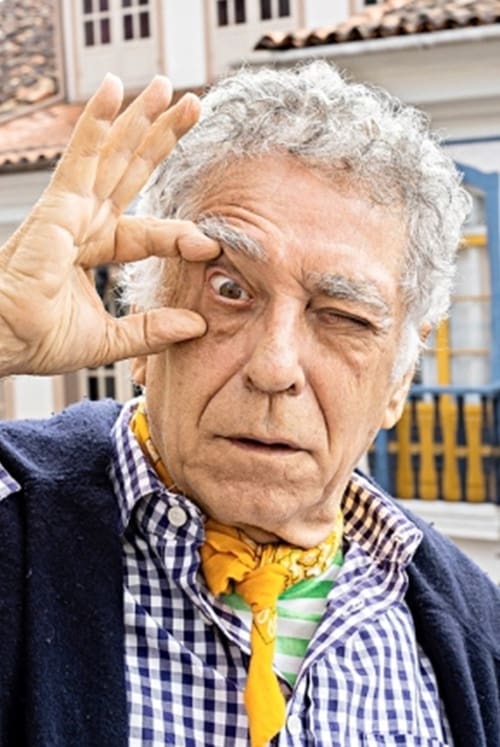
Director

In 1965, a year after the military coup in Brazil, an oasis of freedom opened in the country's capital. The Brasília Film Festival: a landmark of cultural and political resistance. Its story is that of Brazilian cinema itself.

An egotistical stand-up comedian fights with a spectator and gets fired. To be able to pay his son's pension, he decides to participate in a comedy group contest. Now he will need to work harmoniously with the rest of the team.
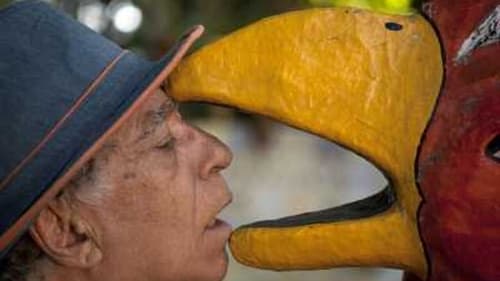
Self
This film seeks to rescue the role of filmmaker Neville D'Almeida by using many rare images, numerous interviews, vast archival and audiovisual material.

Director of Photography
A loose adaptation of a scene from a theatre play written and directed by Thiago Justino, "Humanos Causa" shows the people of a city reclaiming their rights.

Director
A loose adaptation of a scene from a theatre play written and directed by Thiago Justino, "Humanos Causa" shows the people of a city reclaiming their rights.

Director
An excerpt from Neville D'Almeida's debut feature "Jardim de Guerra" (1968), focusing on the Black Power speech made by a character played by Antonio Pitanga.

Self

Adaptation
A young woman travels to solve a matter of life or death. As she seeks to do what she needs, the city exposes itself with its curious characters.

Dialogue
A young woman travels to solve a matter of life or death. As she seeks to do what she needs, the city exposes itself with its curious characters.

Original Story
A young woman travels to solve a matter of life or death. As she seeks to do what she needs, the city exposes itself with its curious characters.

Screenplay
A young woman travels to solve a matter of life or death. As she seeks to do what she needs, the city exposes itself with its curious characters.

Lauro
A young woman travels to solve a matter of life or death. As she seeks to do what she needs, the city exposes itself with its curious characters.

Director
A young woman travels to solve a matter of life or death. As she seeks to do what she needs, the city exposes itself with its curious characters.
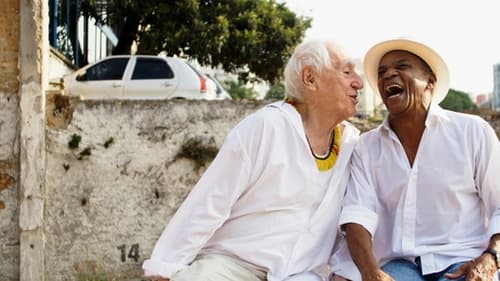
Self
This documentary investigates the aesthetic, political and existential trajectory of emblematic Black Brazilian actor Antônio Pitanga. He career spans over five decades, and he has worked with iconic Brazilian filmmakers Glauber Rocha, Cacá Diegues and Walter Lima Jr. He was a prominent figurehead and outspoken activist during the Brazilian dictatorship, a period of unrest in Brazilian cinema. Pitanga deep dives into the world of Antônio and the history of Brazil. The documentary was directed by his daughter Camila Pitanga, one of widely recognised faces in Brazilian television and cinema right now. The film is also a poem, and a tender ode to fatherhood.
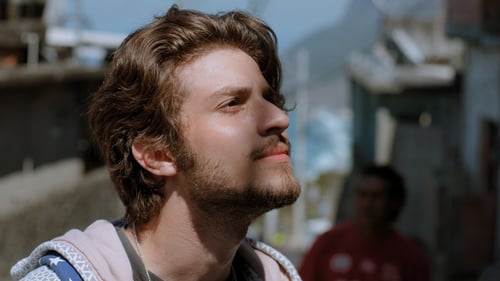
Adaptation
A group of playboys organizes the last party of the year in a slum before the change in weather. And for this night, beyond the usual drugs, alcohol and sex, they will receive special guests: an addict that uses and is used by the group, a country singer who was raised around the slum, a strange security guard and the owner of the place.

Producer
A group of playboys organizes the last party of the year in a slum before the change in weather. And for this night, beyond the usual drugs, alcohol and sex, they will receive special guests: an addict that uses and is used by the group, a country singer who was raised around the slum, a strange security guard and the owner of the place.

Art Direction
A group of playboys organizes the last party of the year in a slum before the change in weather. And for this night, beyond the usual drugs, alcohol and sex, they will receive special guests: an addict that uses and is used by the group, a country singer who was raised around the slum, a strange security guard and the owner of the place.

Director
A group of playboys organizes the last party of the year in a slum before the change in weather. And for this night, beyond the usual drugs, alcohol and sex, they will receive special guests: an addict that uses and is used by the group, a country singer who was raised around the slum, a strange security guard and the owner of the place.

Himself
The theatrologist, actor, director and overall polemist Plínio Marcos gets his life traced through images of the many spectacles he has put on interviews from various moments in his life, from the most rebellious and marginal, when he lacked resources for his art, to when he was invited to go to Paris and talk about his work

Director
A poetic film essay on Gigoia Island, Rio de Janeiro, and its people, fauna and flora.

Screenstory
An encounter between a young woman and an older man ends up in an unexpected way.

Original Story
An encounter between a young woman and an older man ends up in an unexpected way.

Director
An encounter between a young woman and an older man ends up in an unexpected way.

Documentary on "Antonio das Mortes", Glauber Rocha's 1969 film.

Pope John XXIII
A silent film depicting a meeting between Nikita Khrushchev and Pope John XXIII is screened.

Director
A woman explains her distaste for the use of underwear.

Director
A woman teaches her techniques on how to seduct over men.

Director
The tragic story of the misery and abandonment Brazilian indigenous populations have been suffering for over the last 500 years. Maksuara chronicles the wisdom of indigenous people, who live in perfect harmony with nature without destroying or damaging it.

Director
In a monologue, a man explains his thoughts on the exploitation of Brazil's native people's resources.

Director
In a monologue, a man expresses his views over the international selling of the Amazon rainforest.

Director
In a monologue, a man expresses his distaste for the artistic community.

Compilation of early Ivan Cardoso's films in Super 8, including "Nosferato no Brasil (Nosferato in Brazil)"

A documentary short on Glauber Rocha's mother Lúcia.

Director
A documentary short on Glauber Rocha's mother Lúcia.

Director
A documentary short on Tempo Glauber, a foundation created by filmmaker Orlando Senna and Glauber Rocha's mother Lucia in order to celebrate and preservate her son's legacy.

Himself (archive footage)
A short documentary on Belair, an independent Brazilian film company that lasted for only five months in 1970.

Director
An experimental short film directed by Neville D'Almeida, based on the ambience of Cosmococa CC4, one of the installations planned by the filmmaker in partnership with visual artist Helio Oiticica.

Director
Experimental short, focusing on both a woman and a watering can sharing the same swimming pool.
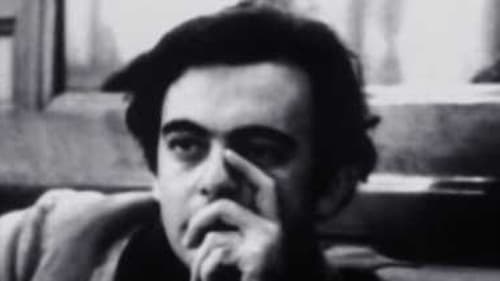
Documentary about Brazilian filmmaker Glauber Rocha, one of the most important names in the Cinema Novo, with interviews with some of his friends and colleagues.

Director
An adaptation of Marcos Vinicius Faustini's rendition of José Vicente's eponymous 1971 play, a story that deals with the five children of Pedro Fogueteiro, who all live in a small town in the state of Minas Gerais and decide to go on a journey to find about their own individual identities in a moment of change lived by their generation, heavily influenced by rock music.
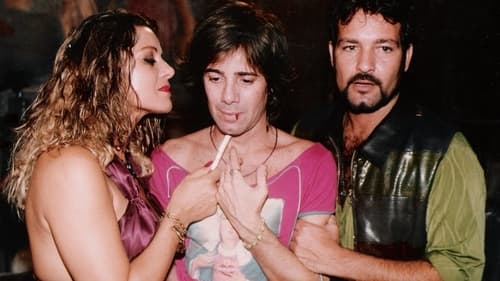
Screenplay
Neusa Suely, a prostitute, is accused by her pimp Vado of stealing his money. To get rid of the accusations, she blames her neighbour, Veludo. The three characters then start to live a small tragedy set in the underground Rio de Janeiro scene.

Man in Club (Cameo)
Neusa Suely, a prostitute, is accused by her pimp Vado of stealing his money. To get rid of the accusations, she blames her neighbour, Veludo. The three characters then start to live a small tragedy set in the underground Rio de Janeiro scene.

Director
Neusa Suely, a prostitute, is accused by her pimp Vado of stealing his money. To get rid of the accusations, she blames her neighbour, Veludo. The three characters then start to live a small tragedy set in the underground Rio de Janeiro scene.

Music Supervisor
In Rio de Janeiro, after an altercation with his father and mother, a young man named Bebeto kills his family and goes to a movie theater, where he watches four weird vignettes.

Executive Producer
In Rio de Janeiro, after an altercation with his father and mother, a young man named Bebeto kills his family and goes to a movie theater, where he watches four weird vignettes.

Producer
In Rio de Janeiro, after an altercation with his father and mother, a young man named Bebeto kills his family and goes to a movie theater, where he watches four weird vignettes.

Screenplay
In Rio de Janeiro, after an altercation with his father and mother, a young man named Bebeto kills his family and goes to a movie theater, where he watches four weird vignettes.

Adaptation
In Rio de Janeiro, after an altercation with his father and mother, a young man named Bebeto kills his family and goes to a movie theater, where he watches four weird vignettes.

Man Reading Newspaper (uncredited)
In Rio de Janeiro, after an altercation with his father and mother, a young man named Bebeto kills his family and goes to a movie theater, where he watches four weird vignettes.

Director
In Rio de Janeiro, after an altercation with his father and mother, a young man named Bebeto kills his family and goes to a movie theater, where he watches four weird vignettes.
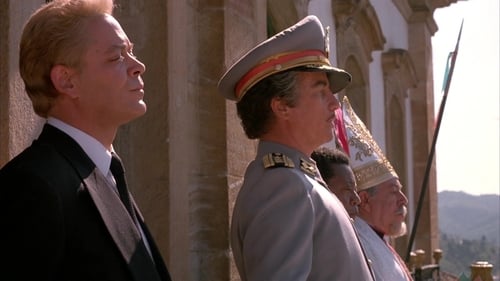
Family Member
뉴욕에서 활동하는 영화 배우 잭 노아는 스타덤에 오르고 싶은 욕망을 갖고 있는 평범한 사람이다. 그는 어느날 중남미 카리브해 연안의 파라도로 촬영을 떠나게 되는데, 이 영화 촬영을 이 나라의 대통령이 시찰하게 된다. 잭은 본의 아니게 그의 모습을 그대로 흉내내게 되어 대통령을 비롯 많은 사람들의 감탄을 자아낸다. 그러던 중, 이 독재자가 심작발작으로 갑자기 죽자 그 뒤에서 실제 권력을 행사하던 로버타는 잭 노아를 변장시켜 독재자를 시키게 하는 것이었다. 물론 불응시에는 생명이 위험하게 되자 잭은 어떨 수 없이 관중 앞에서 첫 연설을 하게 되는데, 결과는 그야말로 그 이상이었다. 그러던 어느날 하류층 출신의 독재자의 정부였던 마돈나는 그의 편에 서서 그가 가야할 길을 제시해주고 어느덧 두사람은 사랑에 빠진다. 그렇지만 독재자에 대한 불만이 커진 공산 게릴라들은 급기야 폭발 테러를 일으켜 큰 위험도 겪는다. 이것에 자극을 받은 잭은 로버토로부터의 위험을 무릅쓰고 급개혁을 단행하게 되고 자신을 노렸던 게릴라들과도 협상을 제시하는 등 그의 인기는 날로 치솟는다. 하지만 잭은 연기자의 생활로 되돌아가 뉴욕으로 가고 싶어한다. 그러던 중 꼭 1년이 되어 자신과 똑같이 파라도로 로케를 온 영화촬영팀에서 특수효과 전문가를 만난다. 그리고 그와 함께 연설 중 자신이 총에 받아 암살되는 계획을 세운다. 그것은 완벽하게 성공하여 그는 죽기전 로버타를 살인자로 지목하고 죽는다. 로버타는 성난 군중에 쉽사여 죽게 되고, 깨어난 잭은 마돈나와 아쉬운 이별후 파라도를 탈출한다. 뉴욕에 돌아온 잭은 파라도가 혼란이 끝나고 마돈나의 주도하에 자신이 못다한 대대적인 개혁 작업이 단행되고 있음을 보면서 흐뭇해하는데...

Spy
In the near future, in the country of Kali, a group of young terrorists carry out robberies, kidnappings and murders under the orders of a mysterious big boss known as "Entity" and are pursued by the pompous and inefficient Special Police.

Night falls when, in an elegant neighborhood of Porto Alegre, a socialite is brutally murdered. The entire police department act immediately to identify and arrest the killer. A man in his 30s wanders down a large avenue. He wears fine clothes, he walks elegantly. His broken watch reads 18:47. The man searches his pockets for documents he cannot find. Neither he can recognize himself in the objects he carries: a wallet full of bills, a theater entrance ticket, a bloodstained handkerchief. Crossing pedestrians for whom that night will be like any other, he seeks to recover his memory and identity.
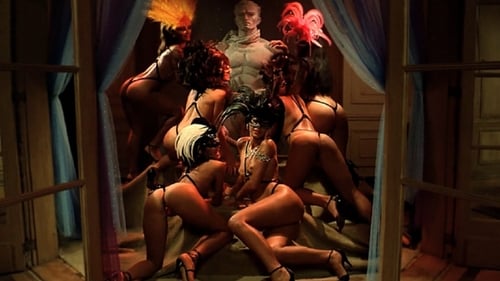
Screenplay
A public relations man is invited to guide an American millionaire during his stay in Rio de Janeiro. He gets involved in the most bizarre situations, from orgiastic mega-parties to confrontations with the police, meetings with drug dealers and movie stars, facing corruption and even murder.

Original Story
A public relations man is invited to guide an American millionaire during his stay in Rio de Janeiro. He gets involved in the most bizarre situations, from orgiastic mega-parties to confrontations with the police, meetings with drug dealers and movie stars, facing corruption and even murder.

Director
A public relations man is invited to guide an American millionaire during his stay in Rio de Janeiro. He gets involved in the most bizarre situations, from orgiastic mega-parties to confrontations with the police, meetings with drug dealers and movie stars, facing corruption and even murder.

Director
The picture brings interviews with the participants of the 1st São Paulo Jazz Festival that occurred in Anhembi Conventions Palace in September 1978 and reunited musicians, composers and singers from all around the world.
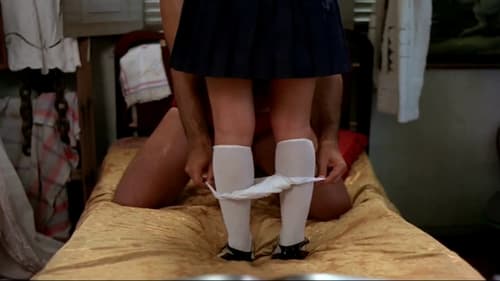
Producer
Noronha is a low middle-class civil servant who lives with his frustrated wife Gorda and their three elder daughters. The youngest one, virginal Silene, is unexpectedly sent back home. Noronha discovers she has been expelled from boarding school for having killed a female cat and her seven newborns in a hysterical fit. Many dark family secrets will emerge from that episode leading to tragic events.

Adaptation
Noronha is a low middle-class civil servant who lives with his frustrated wife Gorda and their three elder daughters. The youngest one, virginal Silene, is unexpectedly sent back home. Noronha discovers she has been expelled from boarding school for having killed a female cat and her seven newborns in a hysterical fit. Many dark family secrets will emerge from that episode leading to tragic events.

Screenplay
Noronha is a low middle-class civil servant who lives with his frustrated wife Gorda and their three elder daughters. The youngest one, virginal Silene, is unexpectedly sent back home. Noronha discovers she has been expelled from boarding school for having killed a female cat and her seven newborns in a hysterical fit. Many dark family secrets will emerge from that episode leading to tragic events.

Director
Noronha is a low middle-class civil servant who lives with his frustrated wife Gorda and their three elder daughters. The youngest one, virginal Silene, is unexpectedly sent back home. Noronha discovers she has been expelled from boarding school for having killed a female cat and her seven newborns in a hysterical fit. Many dark family secrets will emerge from that episode leading to tragic events.

Himself
An unusual look at 1978 Brasilia Film Festival and the politics that make certain films fashionable or not.

Screenplay
Solange is a recently married young woman whose wedding night did not end well. After constant fights with her husband, she decides to live through her sexual frustration by sleeping with strangers she picks up on crowded buses in Rio de Janeiro.

Adaptation
Solange is a recently married young woman whose wedding night did not end well. After constant fights with her husband, she decides to live through her sexual frustration by sleeping with strangers she picks up on crowded buses in Rio de Janeiro.

Associate Producer
Solange is a recently married young woman whose wedding night did not end well. After constant fights with her husband, she decides to live through her sexual frustration by sleeping with strangers she picks up on crowded buses in Rio de Janeiro.

Director
Solange is a recently married young woman whose wedding night did not end well. After constant fights with her husband, she decides to live through her sexual frustration by sleeping with strangers she picks up on crowded buses in Rio de Janeiro.

Himself
In 1973, exiles from Brazil during the military dictatorship, artist Hélio Oiticica and filmmaker Neville D’Almeida lock themselves in an apartment in Manhattan and fantasize a series of iconic sensory installations called quasi-cinema - experience blocks in Cosmococas. The work features slide projections on the walls of the rooms, showing drawing sessions carried out by the artists, using cocaine for doodling and a pocket knife as a brush.

Director
In 1973, exiles from Brazil during the military dictatorship, artist Hélio Oiticica and filmmaker Neville D’Almeida lock themselves in an apartment in Manhattan and fantasize a series of iconic sensory installations called quasi-cinema - experience blocks in Cosmococas. The work features slide projections on the walls of the rooms, showing drawing sessions carried out by the artists, using cocaine for doodling and a pocket knife as a brush.

Himself
Experimental short film, shot in Super 8.

Director
Experimental short film, shot in Super 8.
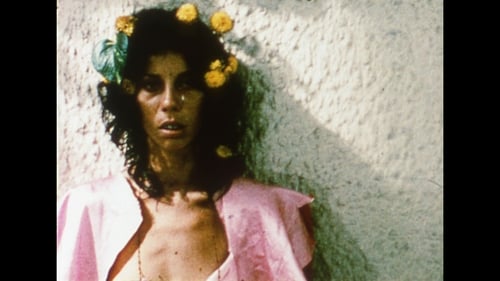
The quasi-fictional story of transgender sex workers living in Rio de Janeiro's swampy red light district, who are joined by a group of hippies and a runaway stockbroker, "Mangue-Bangue" is the paradigmatic expression of the post-1968 spirit of desbunde, the Brazilian slang catchword for "sex, drugs, and rock 'n' roll".

Writer
The quasi-fictional story of transgender sex workers living in Rio de Janeiro's swampy red light district, who are joined by a group of hippies and a runaway stockbroker, "Mangue-Bangue" is the paradigmatic expression of the post-1968 spirit of desbunde, the Brazilian slang catchword for "sex, drugs, and rock 'n' roll".

Director
The quasi-fictional story of transgender sex workers living in Rio de Janeiro's swampy red light district, who are joined by a group of hippies and a runaway stockbroker, "Mangue-Bangue" is the paradigmatic expression of the post-1968 spirit of desbunde, the Brazilian slang catchword for "sex, drugs, and rock 'n' roll".

Spider, a banker, lives with three women. This tycoon is a caricature of Brazil's bourgeoisie, his trajectory is the starting point for an essay on the mental underdevelopment of Brazilian elites, in which black humor sets the tone for sharp criticism.

Santamaria and Urtigo are two bandits on the run, one is white, the other black. Santamaria is a mystical visionary and believes in the imminent coming of a purifying angel. Urtiga, his inseparable companion, is a simple-minded and ingenious man who follows Santamaria around and participates in the crimes he commits. The two bandits take over a house after kidnapping its owner and his girlfriend.
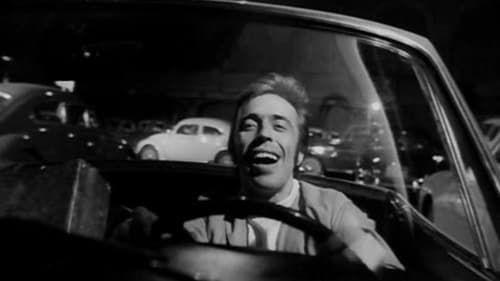
Born and raised in the misery of Brazilian slums, Jorge becomes a luxury house burglar in São Paulo and gets nicknamed "The Red Light Bandit" by the sensationalist press. In addition to wearing a red flashlight, he talks to his hostages in an irreverent tone and makes bold breakthroughs to later spend the money extravagantly. His world is the decadent neighbourhood of Boca do Lixo.

An extended research tour of US university film programs introduced dos Santos to the American avant-garde filmmakers, among them Jonas Mekas and Stan Brakhage, who would directly inspire his formally radical adaptation of an allegorical short story about adultery and colonialism by Guilherme de Figueiredo. Filmed in both Manhattan and Brazil and set against the background of the Vietnam War and its protests, Hunger for Love uses a rigorously abstract soundtrack and narrative structure to evoke the acute paranoia of the period building up to the December 1968 military coup that tipped Brazil perilously close to a conservative dictatorship. With its harsh critique of the decadent tendencies of the Sixties counterculture, Hunger for Love offers a key expression of the self-consciously “ideological” phase of Cinema Novo. -Harvard Film Archive

Set Decoration
Edson is having an affair with a left-wing aspiring movie director during Brazil's military dictatorship years. He tries to get some easy money for her film, but ends up being arrested and tortured as his torturers suspect he's involved in a plot to overthrow the militar government.

Edson is having an affair with a left-wing aspiring movie director during Brazil's military dictatorship years. He tries to get some easy money for her film, but ends up being arrested and tortured as his torturers suspect he's involved in a plot to overthrow the militar government.

Producer
Edson is having an affair with a left-wing aspiring movie director during Brazil's military dictatorship years. He tries to get some easy money for her film, but ends up being arrested and tortured as his torturers suspect he's involved in a plot to overthrow the militar government.

Writer
Edson is having an affair with a left-wing aspiring movie director during Brazil's military dictatorship years. He tries to get some easy money for her film, but ends up being arrested and tortured as his torturers suspect he's involved in a plot to overthrow the militar government.

Director
Edson is having an affair with a left-wing aspiring movie director during Brazil's military dictatorship years. He tries to get some easy money for her film, but ends up being arrested and tortured as his torturers suspect he's involved in a plot to overthrow the militar government.

(as Neville Duarte D'Almeida)
The tensions experienced by three different people during the military dictatorship in Brazil: a politician, a revolutionary and a common citizen.

Editor
In the mid 1960s, while Brazil was being ruled by a military dictatorship, a young man, living in the city of Belo Horizonte, begins to approach a subversive behaviour.

Writer
In the mid 1960s, while Brazil was being ruled by a military dictatorship, a young man, living in the city of Belo Horizonte, begins to approach a subversive behaviour.

Director
In the mid 1960s, while Brazil was being ruled by a military dictatorship, a young man, living in the city of Belo Horizonte, begins to approach a subversive behaviour.

Director

Director
